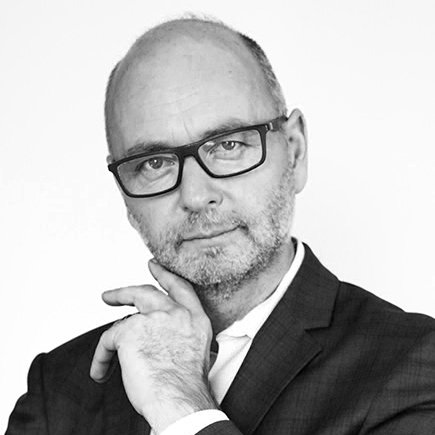 HALLE, GERMANY – OCTOBER 09: Forensic scientists investigate the crime scene near the scene of a shooting that has left two people dead on October 9, 2019 in Halle, Germany. Law enforcement authorities, after initially speaking of multiple attackers, are now referring to a single attacker who has been apprehended. A video, apparently streamed by the attacker live and with commentary from the shooting spree, shows him attempt and fail to force his way into the synagogue in Halle. He then, using what he describes as an improvised weapon, shoots a woman happening to pass by his car on the street and drives to a nearby kebab shop, where he shoots a man inside several times. Afterwards he fires at police blocking a street ahead of him, only to be wounded by returned fire. Towards the end of the video he states that he is bleeding and that he has been shot, and calls himself a complete loser in an apparent apology to his perceived audience for not delivering the action he had anticipated. According to media reports the attacker has been identified as 27-year-old Stephan B. (Photo by Jens Schlueter/Getty Images)
HALLE, GERMANY – OCTOBER 09: Forensic scientists investigate the crime scene near the scene of a shooting that has left two people dead on October 9, 2019 in Halle, Germany. Law enforcement authorities, after initially speaking of multiple attackers, are now referring to a single attacker who has been apprehended. A video, apparently streamed by the attacker live and with commentary from the shooting spree, shows him attempt and fail to force his way into the synagogue in Halle. He then, using what he describes as an improvised weapon, shoots a woman happening to pass by his car on the street and drives to a nearby kebab shop, where he shoots a man inside several times. Afterwards he fires at police blocking a street ahead of him, only to be wounded by returned fire. Towards the end of the video he states that he is bleeding and that he has been shot, and calls himself a complete loser in an apparent apology to his perceived audience for not delivering the action he had anticipated. According to media reports the attacker has been identified as 27-year-old Stephan B. (Photo by Jens Schlueter/Getty Images) While Jews around the world went to pray on Yom Kippur, once again xenocidal killers were planning a cynical and cowardly attack in Halle, Germany. Yom Kipour 2019, a day of prayer, marked by fasting and quiet personal and communal contemplation, will go down as yet another day of anti-Jewish hate-fueled violence. The killers knew Jews would be at prayer, and that their violence would get global publicity. While reports are still coming in, we know that two lives were lost, and many dozens more traumatized by this violent invasion into their place of worship. This is another act of xenocide where indiscriminate mass killing of a group takes place purely because they are identified by a place associated with their religion and ethnicity. This attack can and should galvanize governments and community leaders around the world to take the threat of xenocidal anti-Semitism even more seriously. In addition to the security measures we need to continually strengthen, we also need to redouble our efforts on education and other initiatives to combat the rising tide of hatred.
Hatred of Jews predated Hitler by many millennia, and is still thriving. In 2017, incidents of antisemitism increased by 60%, the highest single-year increase on record. Today’s attack in Germany comes almost exactly a year after the Tree of Life attack in Pittsburgh and joins violent attacks fueled by antisemitism in Denmark, France, and other European countries in recent years. These attacks have ended lives too early, ruined joyous celebrations, and caused communities to reflect and strategize how to combat the rising tide of hatred.
In recent years, USC Shoah Foundation has turned its expertise in documenting genocide to recording acts of contemporary antisemitism and anti-Jewish hatred through its Countering Antisemitism Through Testimony (CATT) program. These interviews which feature victims, witnesses (and even former perpetrators) who have been impacted by antisemitism in the present, highlight the global nature of this growing threat. Antisemitism impacts individual people, entire communities in diaspora, Jews living in the State of Israel, or those deemed to be closely associated to Jews. I am constantly amazed to see how many non-Jews experience antisemitism by association.
The newly recorded testimonies add to the 52,000 Holocaust witness testimonies in the archive—ample evidence of the genocidal nature of anti-Semitism. Every one of the surviving Jewish victims of the Nazi era suffered a direct and genocidal attack on their lives. Antisemitism is xenocidal by default, an attack on the entire Jewish world.
At times like these it is easy to feel defeated, to throw up our hands and say that we can’t possibly make a difference. A year after Pittsburgh this week members of USC Shoah Foundation are delivering programming to help that community continue the healing process from the violence that devastated them just one year ago. The strength of that community is a beacon for our world. As we enter this year, we need to commit our time and resources to do the same in communities around the world, and to stand together in the search for our common humanity. This is not a time for fear, however fearful the physical threat may be. The only way to resist these xenocidal cowards is to be stronger than hate through the values of community and common values we share.






















 More news and opinions than at a Shabbat dinner, right in your inbox.
More news and opinions than at a Shabbat dinner, right in your inbox.